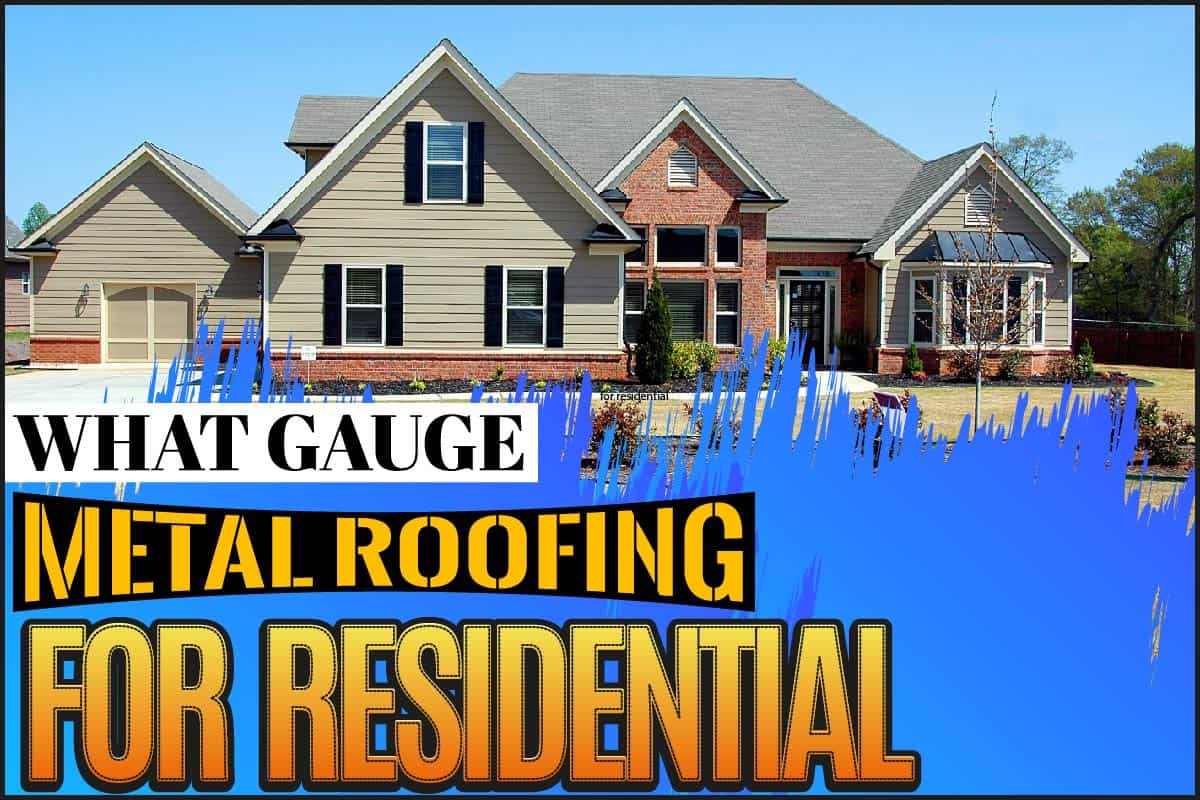Manufacturers and professional roofers often express the thickness of metal roofing sheets in “Gauges.” The 22-gauge is considered the thickest in the US, while the 29-gauge is regarded as the thinnest. It is believed that most homes in the USA use the 29-gauge metal roofing, but areas that are prone to hail-stones, high winds, and many other terrific environmental elements require thicker gauge roofs for homes.
Metal Roofing Gauges: Which Is Best For Residential?
The secret to answering this question is to check whether the thicker or thinner roof gauge is better for roofing. The higher the gauge number, the lighter the roofing material, and it can be not very clear, especially for first-time homeowners to choose the right thickness. For instance, a 24-gauge is thicker than 29-gauge metal roofing. The confusion may also come because different types of metals have different types of measuring standards.
Today, the most standard gauges available for metal roofing are; 22, 24, 26, and 29. The 24gauge and 26-gauge are the best-selling gauges for home roofing. Most beautiful new homes that come with standing seam roofs will likely have 24-gauge thicknesses. If a house is done with an exposed fastener panel, it may likely have a metal roofing thickness of 24, 26, or 29.
The 24-gauge sanding seam metal roofing seems to be the best metal roofing system. It is the second thickest option; it has the advantage that the fasteners are completely concealed, making it the best weather-tight roofing panel.
Unfortunately, this roofing system is the most expensive option of the available options. This option also comes with a costly paint finishing which is PVDF/Kynar 500 paint. This standing seam metal roofing may cost between $2.5and $3.50 per sq. ft.
If you opt for a standing seam roof, you will likely get 24-gauge roof steel, but if you choose an exposed fastener panel, you will likely get a 24, 26, or29 gauge roof metal.
Other Factors To Consider
Though the 29-gauge roofing is helpful in some cases, most expert roofers wouldn’t recommend it. The reason being that his meal panel can be damaged easily by weather elements like a hail storm. It also comes with a very much less snow load and less wind uplift rating. Similarly, the expansion and contraction of lengthy panels can cause severe damage.
If you reside in a high wind and snow region, the risks will be very high even though the 29-gauge is the cheapest. The cost difference between a 29-gauge and 26-gauge is between 9 and 20% of the material cost, but a 26-gauge roofing panel is far better than 29-gauge roofing metal.
A 26-gauge metal roofing may perform well if it sits on a wood substrate, but It still can’t compare with a 24-gauge metal roof. If your home is located in a region of high winds and snow, a 24-gauge metal roofing makes more sense. If you want added protection like Kynar paint, a 24-gauge metal roofing system will indeed work best.
Conclusion
It is not right to just assume hat he 22 or 24-gauge metal roofing material is the best for you, you may want to consult with your professional roofer for some advice on the most appropriate option base on your budget and area of residence. To know more simply get connected with Metal Roofing Chattanooga.


